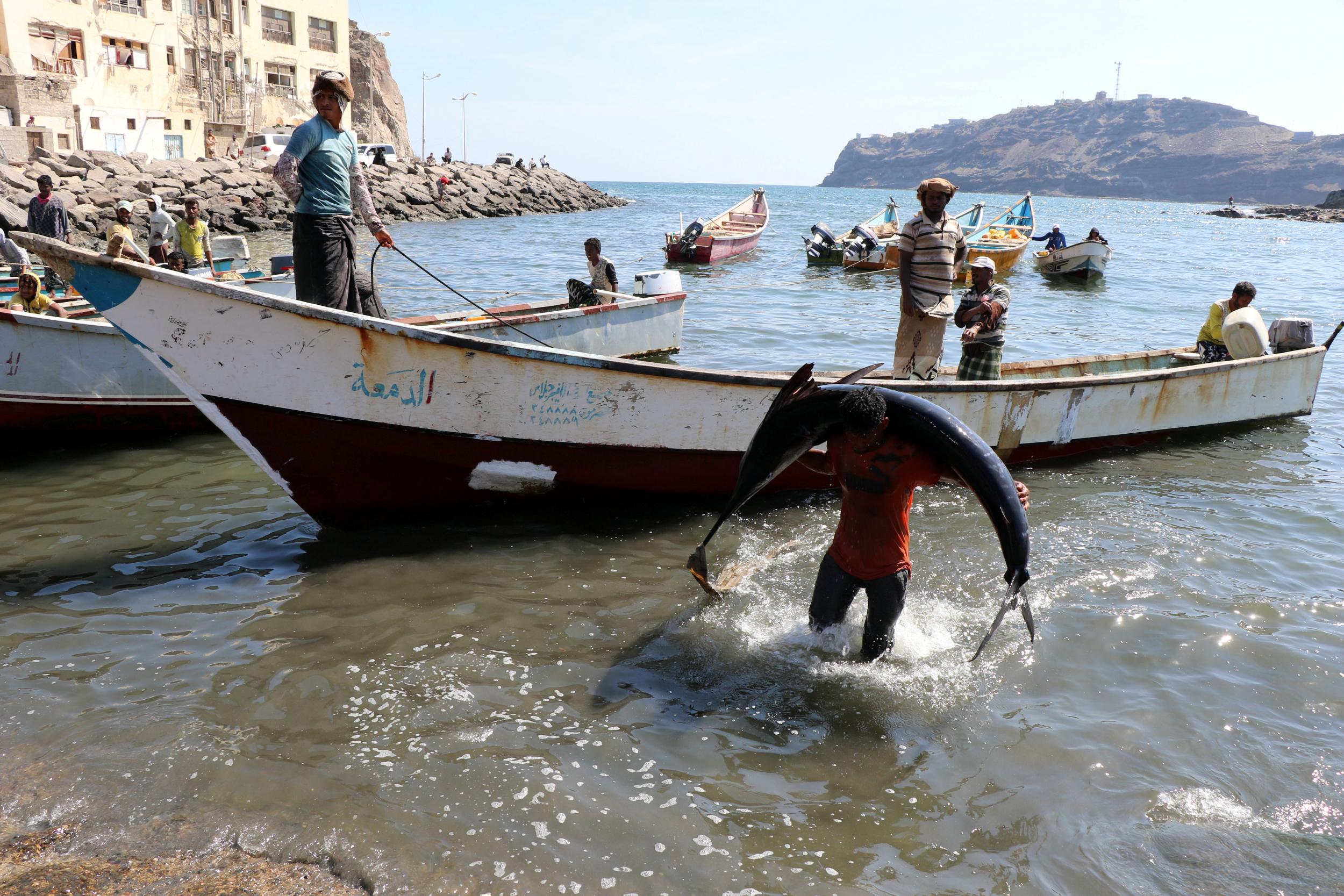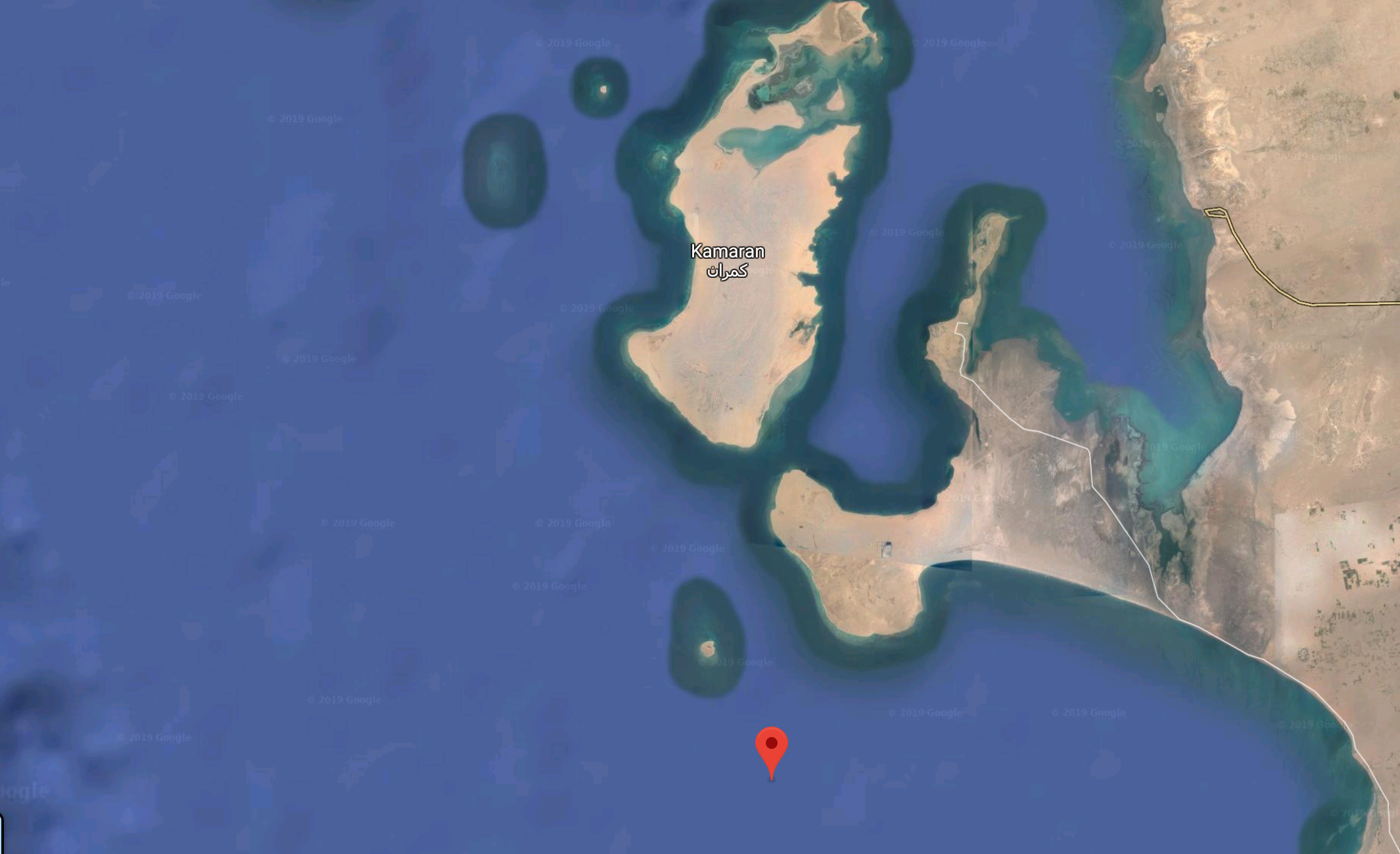‘Ticking time bomb’: Threat of oil tanker explosion could cause one of history’s largest spills
Yemen rebels block UN access to decaying tanker holding 1m barrels of crude

Your support helps us to tell the story
From reproductive rights to climate change to Big Tech, The Independent is on the ground when the story is developing. Whether it's investigating the financials of Elon Musk's pro-Trump PAC or producing our latest documentary, 'The A Word', which shines a light on the American women fighting for reproductive rights, we know how important it is to parse out the facts from the messaging.
At such a critical moment in US history, we need reporters on the ground. Your donation allows us to keep sending journalists to speak to both sides of the story.
The Independent is trusted by Americans across the entire political spectrum. And unlike many other quality news outlets, we choose not to lock Americans out of our reporting and analysis with paywalls. We believe quality journalism should be available to everyone, paid for by those who can afford it.
Your support makes all the difference.A dilapidated tanker holding over 1 million barrels of crude oil could explode off the coast of Yemen, sparking one of the world’s largest oil spills, experts have warned.
The United Nations said this week that Yemen’s Houthi rebels, who control the nearby Red Sea port, have once again refused a technical team access to the decaying Safer tanker.
The Yemen-owned vessel is moored off Ras Isa and was once an offshore platform for vessels landing crude oil from a nearby pipeline to the central province of Marib.
Experts described the vessel as a ticking time bomb, saying it is at risk of exploding due to a dangerous build-up of volatile gases released from the oil it carries and a lack of maintenance of the ship.
The vessel is also disintegrating due to saltwater corrosion.
Russell Geekie, a spokesman at the UN’s Office for the Coordination of Humanitarian Affairs, told The Independent on Tuesday that the UN remained “deeply concerned by the environmental threat” posed by the decaying tanker.
“The permits are still pending and discussions continue to secure them. The UN stands ready to deploy a technical team as soon as the necessary permits are issued,” he added.
Mark Lowcock, the UN’s emergency relief coordinator and under-secretary-general for humanitarian affairs, had said on Thursday that despite the Houthis requesting help from the UN and promising to facilitate the work, they continue to delay access.
He added that the vessel is “at risk of spilling up to 1.1 million barrels of into the Red Sea”.
“The UN assessment team had planned to deploy to the tanker next week, but the necessary permits remain pending with the (Houthi) authorities”, he told an 18 July security council meeting.

“Discussions continue to resolve this as quickly as possible,” he added.
The UN and experts say that an urgent assessment is needed on the vessel, which is supposed to be constantly tended to.
Inert gasses must be injected into the air space in the oil chambers of the ship to stop the build up of volatile gasses and prevent catastrophe.
Dr Ian Ralby, a maritime and security expert who heads up I R Consilium that researched the tanker, said that according to his sources in Yemen the last time inert gasses were inserted into the chambers of the vessel was in June 2017.
He said in April chunks of the vessel started to come off due to corrosion, meaning the vessel could be vulnerable to splitting in two.
Calling it a “massive floating incendiary” he warned that if it did explode, it would create an environmental catastrophe that would stretch past Yemen’s shores, to Saudi Arabia and as far as Eritrea, Sudan and even Egypt.
He added the tanker itself was connected to the Ras Isa-Marib pipeline which he said contained an additional 1 million barrels of crude which could also potentially spill into the sea.
“You’re talking about one of the largest oil spills in history,” he told The Independent.
“A 2 million barrel oil spill would potentially kill off all the coral in the Red Sea,” he added.
Doug Weir, of the Conflict and Environment Observatory that first raised the issue of the tanker last year, said at the heart of the issues is an estimated $80m (£64.3m) of crude oil aboard the vessel.
The cash-strapped Houthis want guarantees they will have access to the revenues of the oil, explaining their reluctance to allow access to the tanker, or for it to be towed away.
The tanker was also meant to be part of a withdrawal agreement in key Red Sea ports outlined in a peace agreement signed by both the Houthis and the Saudi-backed recognised government in Stockholm last year.
Last week the recognised Yemen government sounded the alarm in a video they posted to Twitter.
“The tanker should lie on a point of cooperation, but it is still heavily contested. If the UN can’t get the technical assessment done then it doesn't leave much hope of resolving the crisis,” Mr Weir added.
He said the notorious Exxon Valdez disaster off the coast of Alaska involved 260,000 barrels, just a fraction of what the Safer tanker is believed to contain. Ras Isa is close to one of Yemen’s few marine protected areas.
“It could destroy turtle nesting beaches, mangroves which are essential to supporting the local fisheries, coral reefs and the local fishing industry,” Mr Weir added.
Dr Ralby said even if the oil spill did not stretch across the entire Red Sea, the damage to marine biodiversity and life “would be horrendous” and Red Sea tourism would be “decimated”.
In addition, he warned that a tricky clean-up operation would see the Houthis, the Yemen authorities and the Saudis, who are locked in a war, forced to work together.
You’re talking about one of the largest oil spills in history
This would slow down maritime traffic coming through the Bab al-Mandeb strait to the Suez Canal, some of the world’s busiest waterways.
“It would be a tragedy for the global economy,” Dr Ralby added.
The Iran-backed Houthi rebels are locked in a ruinous war with the Gulf-backed recognised government after they swept control of the country in 2015.
Saudi Arabia and its Gulf allies launched a bombing campaign a few months later to reinstate the authorities.
Join our commenting forum
Join thought-provoking conversations, follow other Independent readers and see their replies
Comments